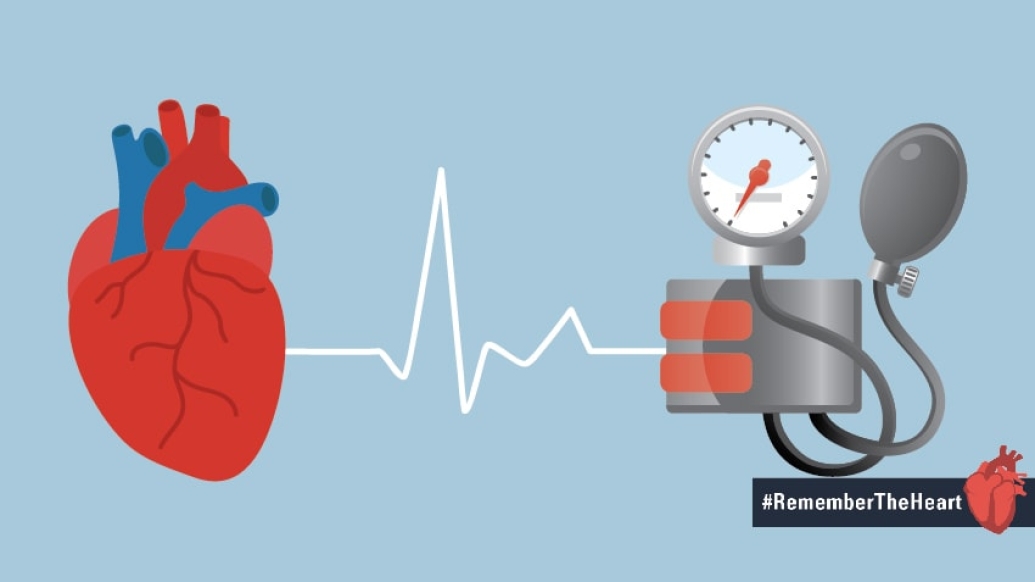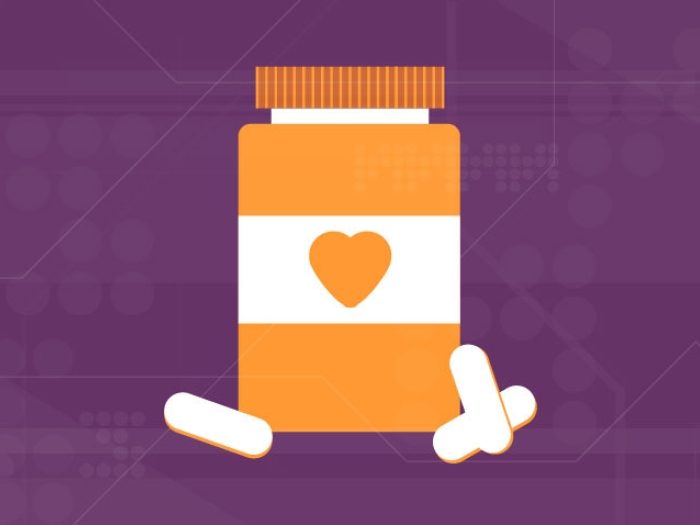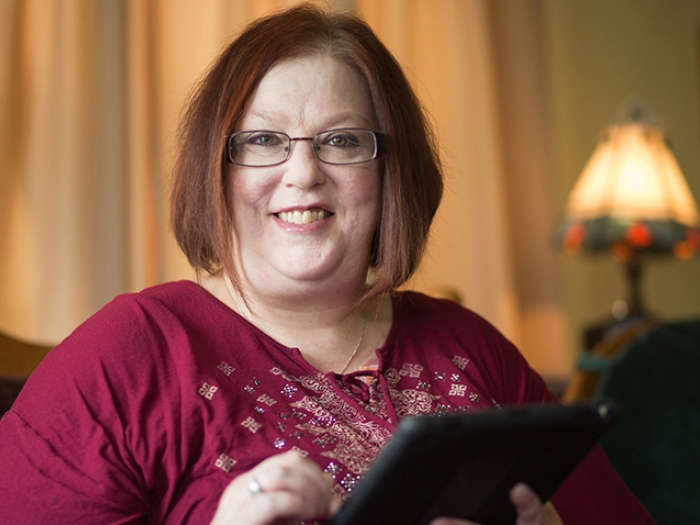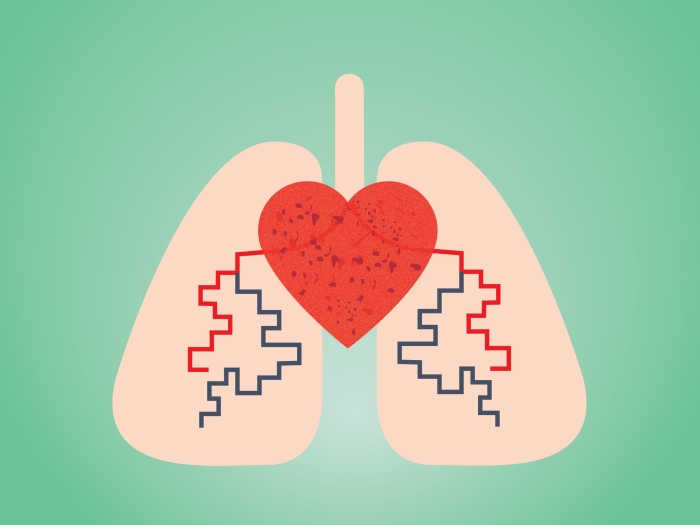New standards for diagnosing hypertension help to encourage heart-healthy behavior. Learn what it means to have high blood pressure — and how to lower it.
7:00 AM
Author |

You may have read about the new blood pressure guidelines, which were designed to boost awareness about the condition and promote healthy habits.
MORE FROM MICHIGAN: Sign up for our weekly newsletter
But you might also be wondering: Am I now at risk?
In November, the American Heart Association and the American College of Cardiology lowered the threshold of diagnosis to 130/80 from 140/90.
Using the new benchmark, 100 million Americans — that's nearly 1 in 2 adults — have high blood pressure, or hypertension. This triples incidence of the condition in men and doubles it for women younger than 45.
Previously, 1 in 3 adult Americans were thought to have high blood pressure.
It's a move that might seem odd, but it could help the health of millions long term.
"These guidelines are not the rule of law," says Susan Steigerwalt, M.D., a clinical hypertension specialist at Michigan Medicine, "but we know that cardiovascular events begin to increase when a patient's blood pressure is above 115/70."
The guidelines also aren't intended to put many more people on blood pressure-lowering medication.
"The first thing we recommend is adoption of a healthy lifestyle," says Steigerwalt. "It's really important not to feel powerless. There is a lot that can be done."
With the new guidelines in mind, Steigerwalt answers common questions about hypertension:
What is blood pressure, and why should I care about it?
Blood pressure is the measure of how hard the blood pushes against the walls of your arteries as it moves through the body. Damage to the blood vessels, heart and kidneys can result when pressure is too high.
SEE ALSO: 8 Easy Ways to Lower Your Blood Pressure
Left untreated, hypertension can have devastating long-term effects. "There are four big risks: heart attacks, heart failure, stroke and dementia," says Steigerwalt.
High blood pressure, which typically has no symptoms or warning signs, is referred to as a silent killer. Keeping track of your readings at annual checkups and other appointments is key.
How is my blood pressure reading taken?
A doctor will use an inflatable rubber cuff known as a sphygmomanometer to get a reading from an attached gauge that measures systolic and diastolic blood pressure.
The top number, systolic, is the pressure when your heart beats. The bottom number is diastolic, the pressure of the rest period between beats.
A reading of 120/80 or below is considered normal.
It's normal for blood pressure to go up and down throughout the day. Which is why the new hypertension guidelines advise taking two to three readings (after a patient has rested for at least five minutes) on at least two occasions.
Other measurements could follow: "We would ideally look at blood pressure readings taken outside of the office before making a diagnosis of hypertension," says Steigerwalt. That approach, she says, could require at-home tests or an ambulatory reading with a small monitor that conducts measurements automatically on the user over 24 hours.
What causes high blood pressure?
Two big contributors are a sedentary lifestyle and a high-salt, high-sugar diet. Both cause the body to work harder in different ways, which can put added stress on the blood vessels.
But in about 90 percent of diagnoses, the source of hypertension is a mystery. "We don't know why you've got it, but you've got it," Steigerwalt says. In the majority of these cases, the diagnosis is then called primary hypertension.
When blood pressure is abnormally high, however, there's a greater likelihood it stems from a secondary cause such as an oversecretion of hormones from the adrenal gland. Some medications, including certain decongestants, stimulants (like Adderall) and birth control, also are associated with high blood pressure.
What can I do to lower my blood pressure?
The new guidelines don't mean a lot more people will need medication — at least not at first.
Lifestyle changes are the first recommended step for everyone, to lower a patient's elevated blood pressure. These continue to be important even if medication is added.
"There is so much you can do: 30 minutes of walking every day, standing up or moving around at work and sleeping at least seven hours a night," says Steigerwalt.
One of her biggest directives is to follow the DASH diet, a regimen designed to control hypertension with a focus on fruits, vegetables, grains and low- or fat-free dairy, as well as less meat and sugar.
Those who are overweight can benefit from losing 10 percent of their body weight, she notes. Limiting alcohol intake (one drink daily for women and two for men) can also help lower blood pressure. And, Steigerwalt adds with emphasis, "Everybody needs to stop smoking."
Do I need hypertension medication?
Some patients may need more than diet and exercise to control their blood pressure.
"We try, if possible, to remove the (triggering) medications and modify lifestyle first," says Steigerwalt.
SEE ALSO: Why Does Pulmonary Hypertension Cause Shortness of Breath?
Still, medication is recommended for those who score 10 percent or greater on a test designed to gauge their risk of certain cardiovascular diseases, even if their systolic blood pressure is between 130 and 139.
If further intervention is necessary, a comprehensive exam and discussion can help your doctor determine the best — and safest — route of pharmaceutical care.
That's especially important for those facing other health issues such as heart failure, coronary artery disease and diabetes.
"People who already have medical conditions have to be careful to keep blood pressure very well controlled," Steigerwalt says. "And you need follow up with a physician and to perform regular measurements at home to confirm the blood pressure has come down and is staying down."

Explore a variety of health care news & stories by visiting the Health Lab home page for more articles.

Department of Communication at Michigan Medicine
Want top health & research news weekly? Sign up for Health Lab’s newsletters today!





